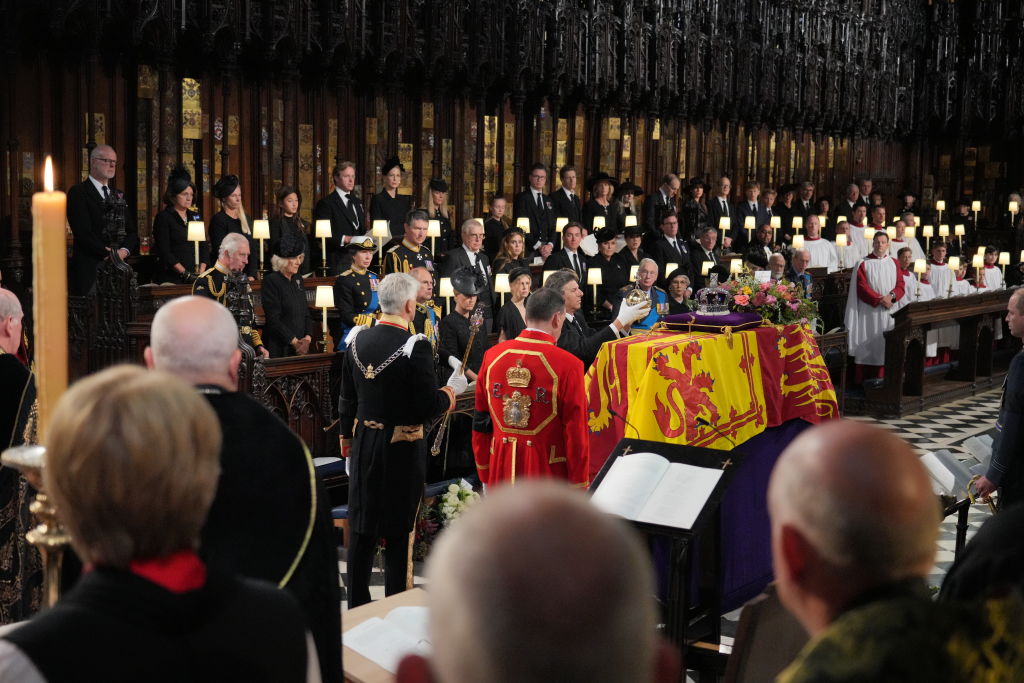One piece of royal tradition lived on Monday during the service of committal held in St. George’s Chapel at Windsor Caster as part of the state funeral for Queen Elizabeth II.
One seat in the front row was left empty, according to the U.K. Daily Mirror.
According to the Mirror, the queen had found the first-row seat in question to be uncomfortable during the services she attended there. The chapel was used by the queen while she was in residence at Windsor Castle.
She moved to the second row, knowing that no one would sit in front of her because protocol governing all things royal requires that no one can sit ahead of the monarch.
Rebecca English, a royal commentator, said at the time that the seat was always left empty.
“She needs to be seen — and the seat she was sitting in today is her favorite seat in that chapel, apparently!” she said.
The empty seat in front of King Charles III on Monday signified that this bit of his mother’s ways will be enshrined in the new king’s reign.
Anna Whitelock, a professor of history of modern monarchy at City University London, said told The Associated Press that with the ceremonies over, Charles must now face reality as king.
“What place does a monarchy have in a multi-faith, multi-ethnic society? And is it the right rallying point for the nation? And should it be the monarch representing the U.K. abroad? What does it say about us? Is it a bastion of tradition that people should applaud?” she said.
“Or is it actually a check on progress that actually doesn’t represent the inclusive, diverse society that people would hope that Britain would now become?”
Her prediction was at least at the start of his reign, Charles will emphasize continuity.
Bertram Leon, a Caribbean native and community activist in London, said change is inevitable.
“The king is actually going to change, perhaps modernize the monarchy in the image that he thinks in the current day. We can’t live back in the 1920s, ’30s or ’50s, when Elizabeth took over. We are now in the 21st century, and I think things are going to be regarded and looked at a bit different,” he said.
“Monarchy is no longer about the clash of steel,” British constitutional expert Lord Peter Hennessy told Financial Times.
“It’s a welfare monarchy. It’s about the clink of scissors cutting the ribbon at the opening of some new National Health facility. About perking up people who need perking up. And the whole family is good at that,” he said.
But the waves of change are lapping at the shore, according to Graham Smith, head of the anti-monarchy group Republic.
“We paused for a couple of days but we have picked up thousands of pounds in new funds and a lot of engagement on social media. It’s partly because of the baggage Charles brings, but mainly because he isn’t the queen, the heat shield that deflected all criticism.
“People did get outraged if you said something bad about her,” he said.
This article appeared originally on The Western Journal.

























 Continue with Google
Continue with Google